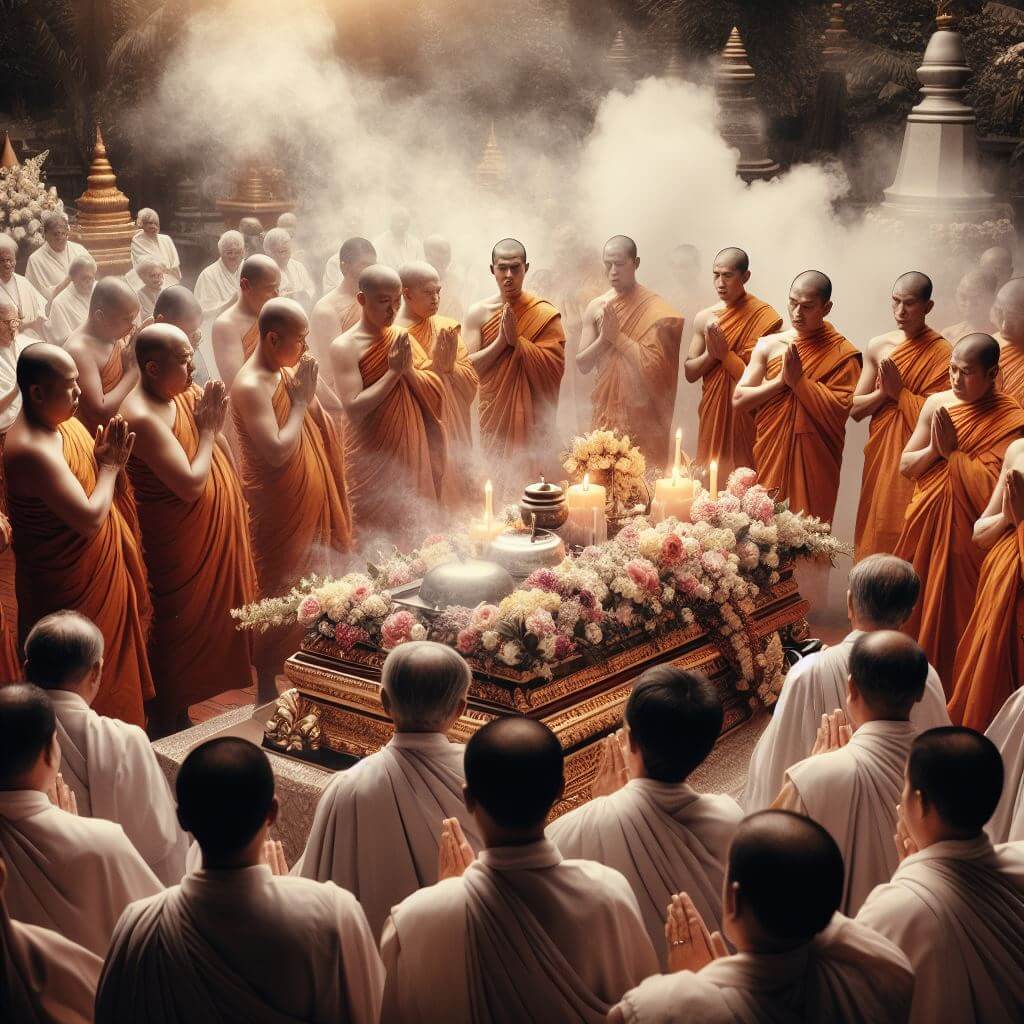Buddhist Funeral Services in Singapore: Practices and What Usually Occur

Singapore is a country where several cultures have come together, and Buddhist funeral services occupy a special place in their religious ceremonies. These funeral rites are deep-rooted in ancient traditions and guided by Buddhist principles, which make them serious acts intended to honour the dead and direct them as they transition into life after death. In this blog post, we will take a look at some of the customs and practices that define Buddhist funeral services in Singapore.
Buddhist Funerals: An Overview
Buddhism has a strong effect on Singapore’s Buddhist funerals, as seen in ideas like karma, impermanence, and the cycle of rebirth. These gestures are intended to console individuals who have lost family members in addition to paying respect to the deceased. Here is what happens during a Buddhist funeral:
1. Pre-Funeral Arrangements: Many things should be looked into before a proper funeral service. This includes getting in touch with either a temple or a funeral parlour so that they can organise both the wake and burial services. Family members usually meet with monks to finalise the arrangements such as chants and prayers that will be said during these occasions.
2. Funeral Ceremony: A Buddhist funeral service’s duration varies according to the family’s preferences and the Buddhist sect. The monks recite sutras to open the event, which is then followed by offerings of incense, candles, and flowers. Family members gather at a predetermined site to give their last condolences to the deceased individual or persons and to comfort the grieving.
3. Cremation or Burial: In Singaporean Buddhist funerals, remains are typically disposed of via cremation. Singaporean Buddhist funeral services Singapore involve taking away bodies after conducting all necessary rituals connected with burials. However, there may be cases where families prefer burying these bodies, especially when there exist reasons for doing so related to religion and culture.
4. Post-Funeral Practices: There are different post-funeral practices that Buddhist families observe in Singapore after the funeral day has taken place. These may include further memorial services, such as days of chanting held after the burial on specific dates. Families may also engage in charity work or donate to Buddhist organisations in memory of lost loved ones.
5. Mourning Period: After the funeral day, Buddhist households often have a period of mourning during which they do not participate in festive activities or dress casually to show respect for the departed. The length of time this mourning period should last will depend on family and cultural beliefs.
Practices and Customs Followed During Buddhist Funerals in Singapore
The solemnity of these ceremonies among Buddhists is deeply rooted in centuries-old cultural practices and traditions that illustrate their diverse religious philosophies. These traditions mix ancient customs with contemporary ideologies, offering a genuinely deep way of honouring the dead and providing solace to those left behind. The following are examples of some common practices seen when attending a Buddhist funeral service conducted in Singapore:
1. Chanting and Prayers
Central to Buddhist funeral setup are chanting sacred texts and reciting prayers. As monks or other individuals lead these chants, they call upon blessings for those who have died, guiding their spirits into the beyond. Chantings create an avenue for smooth transitioning from one life to another subsequent one according to Buddhist beliefs among its adherents.
2. Rites of Offering
The use of offerings in a Buddhist burial process is important in many ways. Generally speaking, family members and other mourners make symbolic offerings such as incense sticks, and flowers among others either during cremation ceremonies or when mourning has ended. These acts are seen as ways of showing respect to their forefathers or loved ones, which helps establish and maintain the bond between them.
3. Merit accumulation
Within Buddhist funeral services, the emphasis is on merit accumulation that will eventually assist the dead person’s journey through the afterlife. For instance, a family may donate money to charity work or donate towards building temples to attain merit on behalf of the dead and ensure they have a better life after death. Such deeds are believed to result in positive karma and minimise suffering in another life.
4. Funeral Wake & Vigil Service
Friends and family assemble for a wake, also known as a “zhai tang,” in Singaporean Buddhist funeral traditions, during which they pay their final respects to the departed. Because it allows friends to remember the departed, express their condolences, and encourage one another through the grief process, this tradition could last for days. During these times, flowers are typically placed on top of a corpse’s casket.
5. Cremation/Burial After Funeral Ceremony
Upon completion of the funeral ceremony, the deceased is either cremated or buried according to Buddhist customs. Many people prefer cremation over burying because space in Singapore is limited. However, depending on one’s beliefs, he/she might opt for burial instead. In this case, the handling of dead bodies may be guided by principles like impermanence; this guiding principle entails a transient nature within Buddhism.
6. After Funeral Observances
Despite being buried, various memorials take place afterwards, commemorating their lives. Families would conduct more chanting sessions or perform memorial services on specific occasions, such as death anniversaries or important Buddhist holidays. This helps establish a sense of continuity by keeping the memory of those who were there before alive.
Singapore Buddhist funeral arrangements and procedures are characterised by traditional blends, compassionate rituals, and other acts intended to honour the dead and comfort the bereaved. Through chanting, offerings, merit-making, and communal support, these ceremonies offer a profound opportunity to reflect on the impermanence of life and the interconnectedness of all beings in the cycle of existence.
Singapore Funeral Sanctuary: Your Trusted Partner in Buddhist Funeral Packages in Singapore
At Singapore Funeral Sanctuary, we understand that preserving your loved one’s dignity is very important and that they should be treated with utmost respect. We offer the best Buddhist funeral package, from $5,500 for 3 days to $6,000 for 5 days. We ensure complete services without financial strain. These packages include everything required for a proper Buddhist funeral, including a cremation casket, embalming process, monk chanting, and full funeral service.
All-round Coverage
Our Buddhist funeral services package provides every necessary aspect for carrying out a traditional Buddhist funeral in Singapore. For instance, we ensure that nobody forgets to bring certain items like sandalwood or Sutra blankets and organise monks to chant during burial ceremonies.
Why Choose Us?
Experienced funeral directors meticulously organise our services to reflect the depth of our understanding of Buddhist beliefs about karma and reincarnation. We appreciate the significance of reinforcing ancestral family piety; therefore, we tailor our services toward maintaining those values with maximum honour and truthfulness.
With Singapore Funeral Sanctuary, you will be confident that the funeral process is handled efficiently and soberly. Our experienced undertakers specialise in Buddhist funerals, working hard to ensure that everything about it is done accurately and religiously. Contact us for compassion, respect, and reliability during times of loss and mourning. We can help you say goodbye to your loved ones with respect and a true heart.

